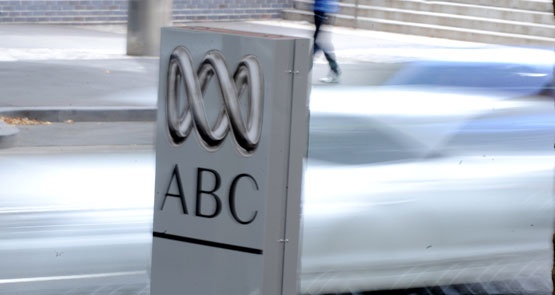
The ABC has said it doesn’t matter if it stops producing content in smaller states because they are well represented through the production companies the ABC uses to produce content. But a Crikey analysis has found that New South Wales gets the lion’s share of contracts — and as usual, South Australia and Tasmania are left with scraps.
When the ABC cut production in South Australia, managing director Mark Scott said in multiple forums that this wouldn’t signal the end of the ABC supporting film and television production work in Adelaide. For example, Scott told Senate estimates in December 2014 that the public broadcaster didn’t need internal production studios to make television.
He referred to an “extensive list” of work with production companies done in South Australia: 19 projects in the last three years (which would have been 2012-2014).
“We invested $8.6 million of ABC funding into that, but the total production value was $22.4 million. ANZAC Girls was a good example of that.
“Similarly, in Queensland, where we made Mabo and Parer’s War; in Western Australia, where we made The War That Changed Us, Flying Miners, The Dreamhouse and An Accidental Soldier — these are all projects that we can make around the country in partnership with the independent production sector, but they are just not programs that are being made by our in-house production team.”
Commissioning but not creating content allowed production houses to apply for funding from places like Screen Australia, which in-house television production was not allowed to do, Scott added.
However, a glance over the list of production companies the ABC has used in the past three years, as well as the states in which those companies did work, shows the list to be dominated by companies that operate in New South Wales. It appears film and television production companies gain as much from centralisation in Sydney as the ABC does.
Of the 208 production companies contracted by the ABC over the past three years, only 18 did any work in Tasmania, while 24 did some work in South Australia.
Meanwhile, of the total, three-quarters (154) did some or all of their work for the ABC in New South Wales, while 94 did some or all their work in Victoria (many companies did work in multiple states), an ABC answer to a question on notice posed by Senator Eric Abetz shows.
Only 35 companies did any work in Queensland (averaging out to just over 10 a year), while 34 did work in Western Australia. The figures for the territories were the lowest — 16 companies did work in the Northern Territory and another 14 in the ACT over the three years for which figures are provided.
The figures do not reveal how much work the companies did, nor how much was spent on the productions; the ABC cited commercial in confidence reasons for not revealing this information, which was requested. Because many companies worked in multiple states, it’s difficult to gauge the amount of work they did in the smaller states. For example, a company that worked in NSW and WA might have spent some time in Perth to gather material for a work largely put together in Sydney. Companies were far more likely to work entirely in one state if they were doing work in New South Wales or Victoria.
The ABC’s response also notes that while it seeks, as required by the ABC charter, to reflect the diversity of the nation, “it does not commission based on location”.








It’s not just program production Myriam. ABC centralisation is also clear in their coverage of state and regional politics. State political coverage is still fairly comprehensive in NSW and Vic, but close to non-existent in other states — where half the population of the country lives.
For example the seventh-largest legislature in the Australia* held an election last month, and the ABC provided nil live coverage. (Antony Green tried to do a bit by himself on-line, but failed due to technical issues.)
(* That’s the Brisbane City Council, larger than Tasmania and both territories combined. As it happened Labor got slaughtered and The Greens won their first ever seat, but I’m sure that’s utterly irrelevant in a Federal election year.)
One of their most effective strangleholds is their self inflicted one which ensures they’re sufficiently brain damaged to not realise how poorly they use taxpayer largess.
And whenever university experts’ contributions, victims’ stories, community spokespeople etc are sought for an ABC programme, they’re almost always from Sydney.
Glen, I agree. State political coverage is now woeful after the ABC cut its Friday night 7.30 report for each state. It’s hard to see ABC’s justification for this.